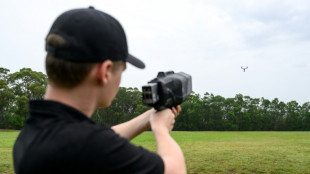

Mutilation ban and microchips: EU lawmakers vote on cat and dog welfare
Compulsory microchipping, as well as bans on ear-cropping and tail-docking, are among a set of new rules to protect cats and dogs that European lawmakers are due to vote on Thursday.
The European Union is home to more than 72 million dogs and 83 million cats, according to the European Commission, which so far has only regulated health requirements for them related to travel within the bloc.
But an uptick in trafficking pushed the EU to propose a set of common rules for breeding, housing and handling the animals, whose sales generate an estimated 1.3 billion euros ($1.5 billion) annually.
The European Parliament in Strasbourg is to vote on a text put forward by the commission in 2023, which introduces minimum welfare criteria for dogs and cats in kennels, shelters and pet shops.
The bill says all dogs and cats should be identified with a subcutaneous microchip when they are sold -- a system already in use in some member states -- and registered in an EU database.
That would boost traceability and tackle illegal traffic, predominantly of dogs, with animal protection groups singling out eastern EU countries like Romania and Bulgaria.
- Hunting exception -
Painful mutilations, like cutting tails or ears, will also be banned in most cases and so will electric, choke and spiked collars.
The law also seeks to prohibit inbreeding and the breeding of animals with accentuated traits, such as overly short legs, that could affect their welfare.
The measures enjoy broad consensus among political groups but the extent of their application has been the cause of contention, for those keeping a small number of animals will be exempt.
"For the time being, 80 percent of breeders would not be covered," lamented Green lawmaker Tilly Metz.
Other exemptions have upset animal rights activists.
Strays will not be covered by the microchipping requirement, for example, and the ban on mutilations is less stringent for hunting dogs.
Similarly, coercive collars will still be allowed to train police, military and border patrol dogs.
"This text lays some interesting foundations, but it does not go to the heart of the matter," said Christophe Marie of French animal protection group Fondation 30 Millions d'Amis.
If adopted by lawmakers, the legislation will need to be approved by EU member states before coming into force.
K.Costa--IM



